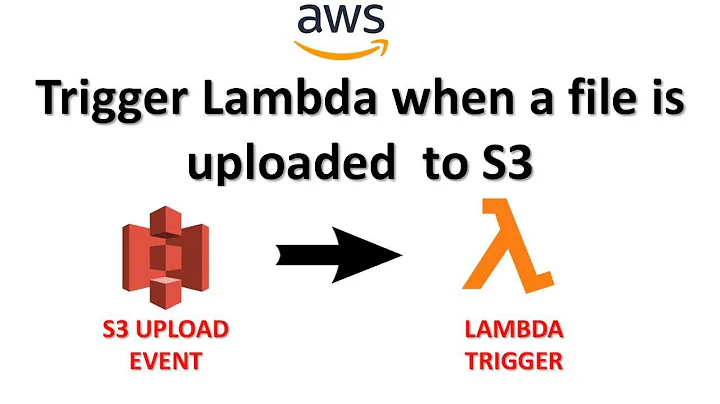Explicitly use a Func<Task> for asynchronous lambda function when Action overload is available
Solution 1
Because
Task.Runhas signatures of bothTask.Run(Func<Task>)andTask.Run(Action), what type is the async anonymous function compiled to? Anasync voidor aFunc<Task>? My gut feeling says it will compile down to anasync voidpurely because its a non-generic type however the C# Compiler might be smart and giveFunc<Task>types preference.
The general rule, even without async, is that a delegate with a return type is a better match than a delegate without a return type. Another example of this is:
static void Foo(Action a) { }
static void Foo(Func<int> f) { }
static void Bar()
{
Foo(() => { throw new Exception(); });
}
This is unambiguous and calls the second overload of Foo.
Also, is there a way to explicitly declare which overload I wish to use?
A nice way to make this clear is to specify the parameter name. The parameter names for the Action and Func<Task> overloads are different.
Task.Run(action: async () => {
await Task.Delay(1000);
});
Task.Run(function: async () => {
await Task.Delay(1000);
});
Solution 2
I just checked it gets compiled into Task.Run(Func<Task>) by default, I don't have good explanation for this.
Here is the relevant part of IL
IL_0001: ldsfld UserQuery.CS$<>9__CachedAnonymousMethodDelegate1
IL_0006: brtrue.s IL_001B
IL_0008: ldnull
IL_0009: ldftn UserQuery.<Main>b__0
IL_000F: newobj System.Func<System.Threading.Tasks.Task>..ctor//<--Note here
IL_0014: stsfld UserQuery.CS$<>9__CachedAnonymousMethodDelegate1
IL_0019: br.s IL_001B
IL_001B: ldsfld UserQuery.CS$<>9__CachedAnonymousMethodDelegate1
IL_0020: call System.Threading.Tasks.Task.Run
you can check this easily using visual studio type inference, it will show you what method it will be compiled if you just place mouse over the method, or just click the method press F12 you can see the metadata which will tell you what was the type inferred by compiler.
Also, is there a way to explicitly declare which overload I wish to use? Yes, Specify the delegate explicitly.
Task.Run(new Action(async () =>
{
await Task.Delay(1000);
}));
Task.Run(new Func<Task>(async () =>
{
await Task.Delay(1000);
}));
Related videos on Youtube
jduncanator
Updated on June 27, 2020Comments
-
jduncanator almost 4 years
Reading over this blog post on some of the gotchas of C#5's async/await. It mentions in Gotcha #4 something that is quite profound and that I hadn't thought of before.
Briefly, it covers the scenario where you have a method that has two overloads, one that takes an
Actionand one that takes aFunc<Task>(for exampleTask.Run). This issue is rooted in the argument thatasync voidmethods should only be used for event handlers, with the post then going on to portray the following scenario - What does the compiler infer when a lambda function like the following can be compiled to both aFunc<Task>and anAction:Task.Run(async () => { await Task.Delay(1000); });Because
Task.Runhas signatures of bothTask.Run(Func<Task>)andTask.Run(Action), what type is the async anonymous function compiled to? Anasync voidor aFunc<Task>? My gut feeling says it will compile down to anasync voidpurely because its a non-generic type however the C# Compiler might be smart and giveFunc<Task>types preference.Also, is there a way to explicitly declare which overload I wish to use? I know I could just create a new instance of
Func<Task>and pass in the async lambda function there but it would still compile down to aasync voidand then pass that into the constructor of theFunc<Task>. What is the ideal way to make sure its compiled as aFunc<Task>?-
Stephen Cleary over 10 yearsMicrosoft did actually change the compiler so that it would choose
Func<Task>overAction, all else being equal. AFAIK, Eric Lippert has not yet addressed this on his blog... :) -
horgh over 6 years
-
-
jduncanator over 10 yearsIf you read the next sentence, this only "sorta" mitigates the issue... the inside
async () =>lambda function still compiles to anasync voiddelegate. -
 Sriram Sakthivel over 10 yearsDoes my edit makes sense? Or am missing something..?
Sriram Sakthivel over 10 yearsDoes my edit makes sense? Or am missing something..? -
jduncanator over 10 yearsYes! Your edit makes perfect sense! I was
Ctrl-Shift-Spaceing in the method parameters and it was shown theActionoverloads signature so I thought it was compiling to anasync void. Turns out its not! The compiler automatically picks Func<Task> for async lambdas as preference over Action! Thanks! -
Jeppe Stig Nielsen over 10 yearsReally cool to use parameter name to choose overload. Otherwise, one would cast the entire lambda to the desired delegate type, but that looks ugly. In your first example, the name of the parameter
fis a little confusing (though legal) since the method itself is also calledf. -
jduncanator over 10 yearsAwesome! Is it standard to use different parameter names in the .NET Framework?
-
 Admin over 10 years@jduncanator I'm not sure how to read that. The parameter names are considered part of the API, and changes to the parameter names are considered breaking changes, so it's "standard" in that you can trust that MS won't suddenly change it without a very good reason. Does that answer your question?
Admin over 10 years@jduncanator I'm not sure how to read that. The parameter names are considered part of the API, and changes to the parameter names are considered breaking changes, so it's "standard" in that you can trust that MS won't suddenly change it without a very good reason. Does that answer your question?












